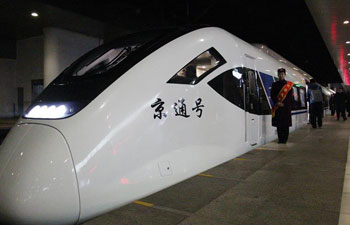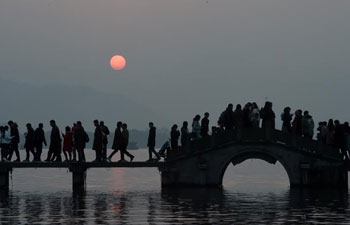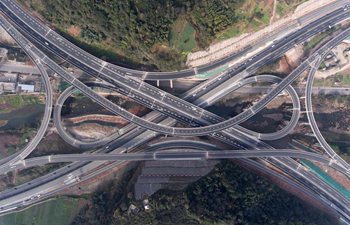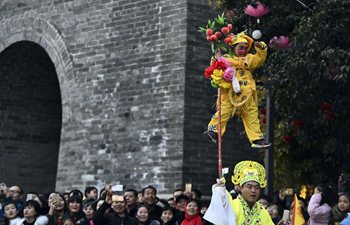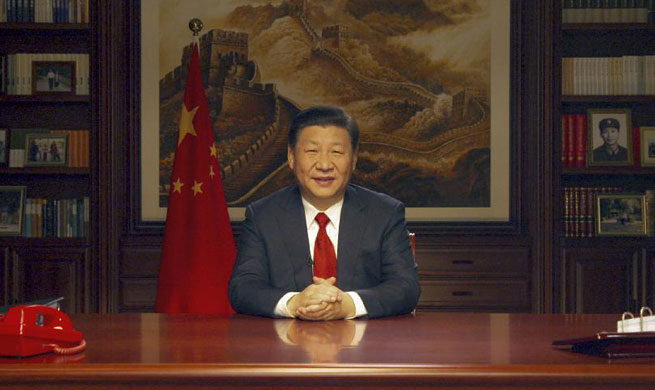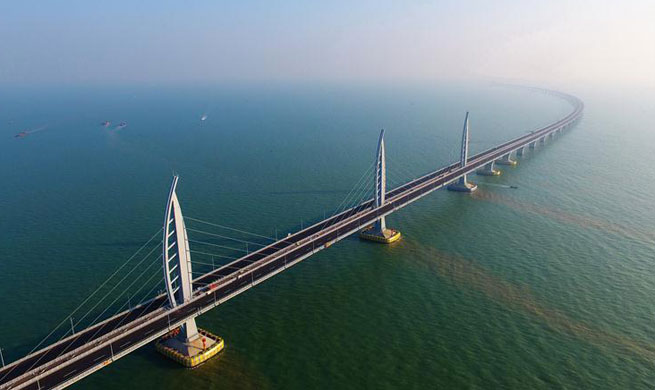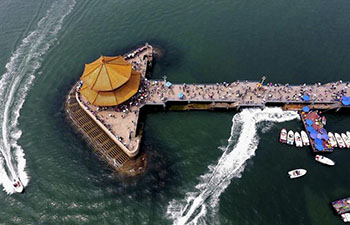by Alessandra Cardone
ROME, Dec. 31 (Xinhua) -- Italian parties must fulfil their key responsibility and "drive the change", as the country prepares to hold general elections in March, Italy's President Sergio Mattarella said Sunday in his New Year speech.
"The speed of innovation is pressing, leading us into a new era ... Yet, changes must be governed, in order to prevent injustices and new social exclusion," Mattarella said.
The true mission of politics would consist "precisely in the ability to face such innovations, and to guide the process of change".
"The responsibility to advance suitable proposals -- convincing and tangible proposals -- is strongly required, given the size of our country's problems," the president stressed.
Mattarella made such remarks days after dissolving the parliament on Dec. 28, paving the way to elections. In the same day, Prime Minister Paolo Gentiloni's cabinet set the date for the vote on March 4, officially launching what was expected to be a harsh campaign.
In his address, broadcast on TV from the presidential palace on Sunday, Mattarella said he wished "a broad participation in the vote" and especially by the younger generations.
"As always, the election will open a blank page, and voters will be the first to write it, followed by parties and parliament," he said. "I am confident in the presence of the young people born in 1999, who will vote for the first time."
Focusing on the younger generations' participation in the political life, Mattarella recalled the next year would mark a century from World War I.
"In these same months a century ago, the eighteen-year-olds at the time were being sent to war, and to the trenches, where many lost their life," he explained. "Nowadays, our eighteen-year-olds go to the polls. I am saying this because we often forget we are living the longest period of peace ever for our country and for Europe."
As such, he urged Italians to not live "in the trap of an everlasting present."
"The horizon of the future is the real subject of the upcoming electoral contest," Mattarella pointed out.
Italy's closing legislature saw three center-left cabinets following one another since 2013, respectively led by Enrico Letta, Matteo Renzi, and Paolo Gentiloni from ruling Democratic Party (PD).
However, the current landscape was fragmented, fuelling fears a period of instability might affect the post-crisis recovery of the euro-zone's third-largest economy.
Thus, such a strong focus on politics by the president -- and his appeal to the responsibility of political forces -- did not come unexpectedly.
With three months before elections left, the center-left PD was seen as losing ground in favor of anti-establishment Five Star Movement (M5S), which has grown as Italy's most popular party.
Latest opinion polls showed the M5S at around 27.5 percent, followed by the PD at 24 percent, and by center-right Forza Italia (FI) party of former premier Silvio Berlusconi at about 16 percent.
If such projections will be confirmed in the vote, none of the big parties would be strong enough to govern alone, and the election might result in a hung parliament.






